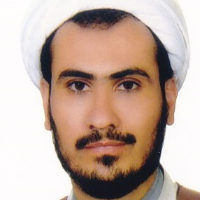Anthropological Principles of Ethics in Shaykh Mufīd's Thought
Anthropology of ethics is one of the new and interdisciplinary topics, which explains ethics based on anthropological principles and the relationship between the two. From the past up to the present, Islamic theologians have made considerable efforts in elucidating the relationship between anthropology and ethics. Unfortunately, today these efforts have been forgotten and as a result, we are witnessing day by day the increasing spread of secular ethics in Islamic societies with an experimental anthropological approach. Accordingly, using a descriptive-analytical method, the authors of the present research decided to reappraise the opinions of Shaykh Mufīd, one of the prominent Shi'ite theologians, in explaining the relationship between anthropology and ethics. Based on the research done, some of his most important opinions in this regard are: the two-dimensionality of man, the accidental and mortal nature of the soul, the negation of predestination and the proof of the intermediate position (amr-i bayn al-amrayn), the rational good and evil of actions, the evil of imposing an impossible task (taklīf-i mā lā yaṭāq), the precedence of capability over action, and the intention as a criterion for valuing an ethical act.
-
Evaluating Roberto Tuttoli's views on Prophet Shu'ayb (AS) in the Quran
*, Hasan Rezaii, Habibeh Mansouri
Journal of Religious Research And Efficiency, -
A Critical Analysis of Alexander D. Knysh’s View on the Exegetical Methods of Ghazali and Ibn Arabi
Rasol Mazraei, Hasan Rezaee Haftador *,
The Qur’an from Orientalists Point of View Qur’an and Orientalists, -
The Meaning of Intimacy (maḥramiyya) of a Believing Man with a Believing Woman in the Hadith of "Definitely, a Believing Man is an Intimate of a Believing Woman"
*, Somayyeh Azad Del, Samad Abdullahi Abed
Journal of Quran and Hadith Studies, -
The Position of “Construe” in the Artistic Recitation of the Holy Quran
*, Isa Alizadehmenamen, Mohammad Taghi Mirzajani
Journal of Quranic Studies,




